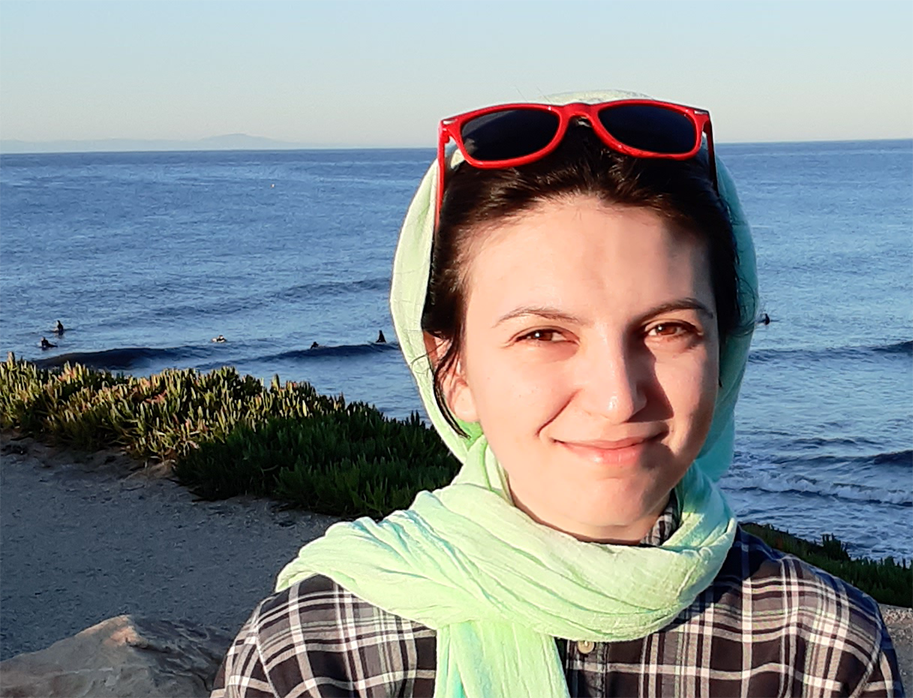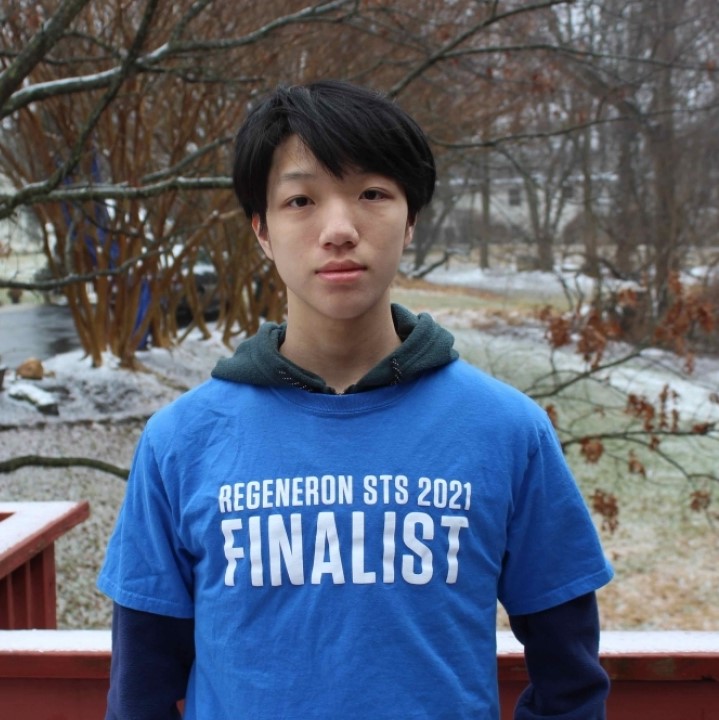Faculty, Staff, Student and Alumni Awards & Notes
- Details
- Category: Department News
- Published: Sunday, February 07 2021 00:01
We proudly recognize members of our community who recently garnered major honors, began new positions and more.
Faculty and Staff
- Jesse Anderson received the 2020 Lorraine DeSalvo Chair's Award.
- Tielia Bean has joined the department's payroll office.
- Melissa Britton, Josiland Chambers, Bonnie Seal-Filiatreau, Tom Woycheck-Gleason and Ayla Hurley received Staff Excellence Awards.
- Nicholas Butch received the National Institute of Standards and Technology’s 2020 Samuel Wesley Stratton Award.
- Sankar Das Sarma was honored on the 50th anniversary of Physical Review B and named a 2020 Highly Cited Researcher. He has also written a blog on COVID-19.
- Steve Fetter received the Leo Szilard Lectureship Award from the American Physical Society.
- Sylvester James "Jim" Gates, Jr. is the 2021 President of the American Physical Society.
- Al Godinez retired from the receiving office after 25 years.
- Alexey Gorshkov was elected a Fellow of the American Physical Society.
- Wendell Hill was included in a listing of 1,000 inspirng Black scientists.
- Hassan Jawahery discussed the COVID-19 shutdown's effect on LHCb in Knowable.
- Xiangdong Ji and collaborators published a Nature Review cover article on proton spin. An accompanying editorial praised a century of proton research.
- Richard G. Kellogg, who joined the Elementary Particle Group under George Snow in 1978, retired and is living in Maine.
- Alicia Kollár was awarded a grant by the Air Force’s Young Investigator Research Program.
- Don Lynch retired from the lecture demonstration facility after 11 years.
- Chris Monroe was elected a Fellow of the Optical Society of America, named a 2020 Highly Cited Researcher and quoted in a Nature story on quantum computing.
- Luis Orozco retired and is currently a Research Professor and Professor Emeritus.
- Johnpierre Paglione discussed experimenting with virtual community building in a Moore Foundation story.
- Christopher Palmer will join the department as an Assistant Professor in high energy physics on March 1.
- Dennis Papadopoulos retired and is currently a Research Professor and Professor Emeritus.
- Will Parker and Hassan Jawahery described their LHCb B meson work in Symmetry magazine.
- Roald Sagdeev signed an open letter urging the Russian government to stop persecuting activists.
- Eun-Suk Seo was quoted in a Diamondback article about faculty adapting to online courses.
- Robinjeet Singh's work was a Physics highlight.
- Ian Spielman was honored on the 50th anniversary of Physical Review A.
- Jake Taylor received the Department of Commerce Gold Medal.
- Ron Walsworth was quoted in an article on startups in Technical.ly Baltimore.
- Dannielle Watkins received the 2020 Sibylle Sampson Award.
- Ellen Williams was a panelist on federal policies to strengthen science at the 2021 APS Annual Leadership Meeting.
- Victor Yakovenko's work was cited in a New York Times story about stock price volatility.
Students
- Ezra Bregin was quoted in a Diamondback article about adapting to online classes.
- Aaron Green quoted in a Diamondback article about peer counseling.
- Will Heffernan was quoted in a Washington Post story about classes in a pandemic.
- Tsung-Sheng Huang received the Kapo-Barwick Award.
- Brandon Johnson's band was featured in the Diamondback.
- Daniel Levy spoke to the Diamondback about starting his UMD experience at home.
- Venkata Sai Saketh Muddu received the Richard and Anna Iskraut Scholarship.
- Alireza Seif, with Mohammad Hafezi and Chris Jarzynski, published a Nature Physics cover story that was also highlighted at Phys.Org.
- Yukari Yamauchi received a graduate fellowship to conduct research at Jefferson Lab.
- Ina Flood, Yonatan Gazit, Scott Hurwitz, Emily Jiang, Zachary Metzler, Anthony Munson, Dhruvit Patel, Nathan Zimmerberg, Batoul Banihashemi, Joseph Hayden, Shams Mehdi, Deepak Sathyan, Jiashen Tang and Shuyang Wang were honored as exceptional TAs with the Ralph Myers Awards.
Alumni
- Beverly K. Berger (Ph.D, ‘72) received the 2021 American Physical Society's Richard A. Isaacson Award in Gravitational-Wave Science, named for UMD Physics alumnus Richard Isaacson (Ph.D. '67).
- Tim Elam (Ph.D. '79) is a senior principle physicist at the University of Washington and the chief spectroscopist of the NASA team that developed the Planetary Instrument for X-ray Lithochemistry (PIXL).
- Gerald Gilbert (postdoc, 1990s) was named a MITRE fellow and leads the firm's quantum information efforts.
- James Isenberg (Ph.D. ‘79) was named a fellow of the American Mathematical Society.
- Phil Johnson (Ph.D. '00) helped build and now directs American University's Integrated Space Science and Technology Institute (ISSTI).
- Ruth E. Kastner (B.S. '82, M.S. '92, Ph.D. '99) received an Alumni Research Award from the UMD Alumni Association.
- Soubhik Kumar (Ph.D. '20) and Scott Lawrence (Ph.D. '20) received the Ching-Hung Woo Endowed Prize in Physics.
- Nga Nguyen-Fotiadis (postdoc, 2010-11) is now a researcher studying machine learning at Los Alamos National Lab.
- Nick Poniatowski (B.S. ’20) received the 2020 APS LeRoy Apker Award.
- C.V. Vishveshwara (Ph.D. ‘68) was remembered in an NPR story marking 50 years of black hole research, and in another linking his work to the 2020 Nobel Prize.
Department Notes
- The US News Best Global Universities index rated the department #9 in physics among US universities and #13 in the world.
- The University of Maryland chapter of the Society of Physics Students (SPS) has won an Outstanding Chapter Award from the SPS National Office. This is the eighth time the chapter has been recognized for its excellence as a top-tier student-led physical sciences organization, a designation given to only 15 percent of all SPS chapters..The SPS chapter is advised by Donna Hammer and is led by student officers.
- UMD will lead a $1 million NSF effort to connect quantum computers.
- Joe Weber's pioneering ideas were cited in an Inverse magazine article about LIGO.
In Memoriam
Tom McIlrath of IPST died in December at the age of 82. In addition to a long and successful career in atomic and laser physics at Maryland and in collaboration with colleagues at NIST, he served as the APS Treasurer from 1997-2006, overseeing the successful transition of APS journals from primarily print to an electronic base, a significant service to our community.
Michael Moses, (M.S. '77) died in January at the age of 67. After serving as a computer scientist for the U.S. Army, Moses worked for Raytheon and for NASA's Chandra project.

